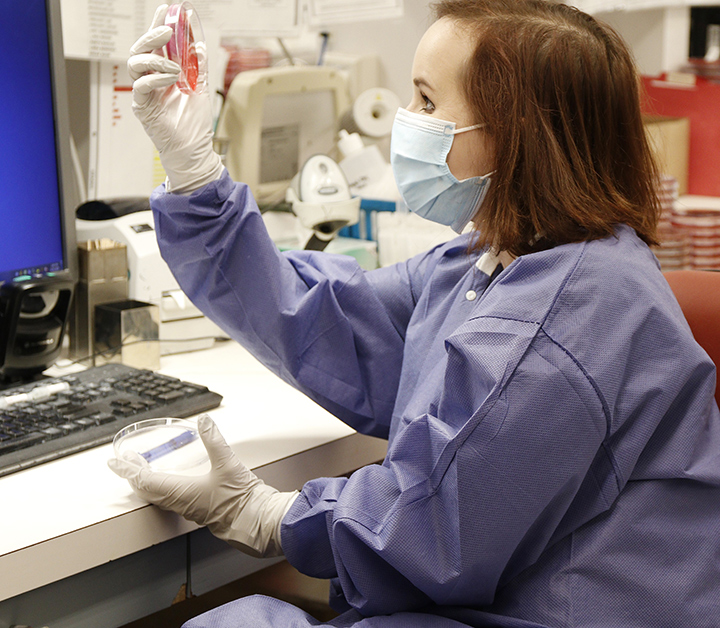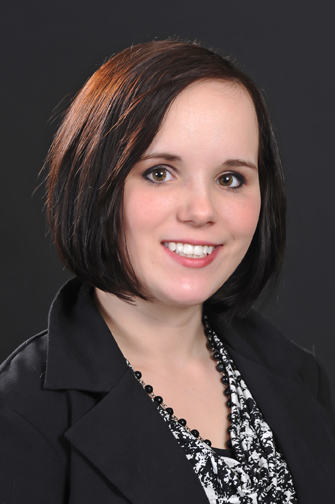 Just
six
years
after
earning
her
undergraduate
degree
in
neuroscience
and
biology
at
BW,
Dr.
Kara
Gawelek
'14
is
notching
achievements
faster
than
a
TV
procedural
solves
a
mystery.
Just
six
years
after
earning
her
undergraduate
degree
in
neuroscience
and
biology
at
BW,
Dr.
Kara
Gawelek
'14
is
notching
achievements
faster
than
a
TV
procedural
solves
a
mystery.
Her most recent achievement: a forensic pathology fellowship at the world-renowned New York City Office of Chief Medical Examiner, where she is "absolutely thrilled" to begin training at the start of the 2022 academic year.
"She's actually going to be just like 'Bones' on TV," explains her old BW professor Dr. Joseph Yavornitzky. "This is about as lofty of a position as you can get in the medical world, with the exception of Surgeon General."
To earn her way into such an elite program, Gawelek first went from BW to Case Western Medical School, where she concurrently earned both an M.D. and an M.S. in Applied Anatomy. Then, on to a residency at Boston's Brigham and Women's Hospital, affiliated with Harvard Medical School, where she now teaches as a clinical fellow in pathology, while working as a resident in anatomic and clinical pathology at Brigham and Women's.
As a teenager, Gawelek's interest in pathology was born out of real-life tragedy when her father died suddenly when she was just 14, and he was 45. "I felt immense confusion, fear and grief," she remembers.
Soon, though, she added "curiosity" to those feelings of pain when a compassionate medical examiner relayed autopsy results that showed atherosclerotic heart disease as the cause of death.
"I was fascinated by the wisdom of the forensic pathologist, who could learn so much about a person without ever speaking to them and give voice to their final story," she says. "The diagnosis also prompted relatives to initiate preventative care - and probably saved their lives."
 With
her
interest
further
fueled
by
TV
shows
like
"CSI:
Crime
Scene
Investigation"
and
"X-files,"
it
nonetheless
took
a
BW
boost
in
confidence
to
convince
Gawelek
to
pursue
her
dream
of
becoming
a
medical
sleuth.
With
her
interest
further
fueled
by
TV
shows
like
"CSI:
Crime
Scene
Investigation"
and
"X-files,"
it
nonetheless
took
a
BW
boost
in
confidence
to
convince
Gawelek
to
pursue
her
dream
of
becoming
a
medical
sleuth.
In fact, Gawelek didn't initially pursue pre-med as a course of study at BW because she told Yavornitzky "she didn't think she was smart enough to become a doctor." Her professor disagreed.
As a "First Generation" college student, Gawelek was the first in her immediate family to graduate from college. But Yavornitzky, who still keeps in touch with the young pathologist, saw her as a whip-smart, "four-foot-eight whirlwind," (she now requires a step stool during autopsies) who "had more energy than two or three people combined."
Gawelek says Yavornitzky provided "absolutely critical encouragement and guidance" that opened her eyes to her own potential.
"I will always be grateful for the strong academic foundation, extracurricular experiences and technical skills I learned at BW," recalls Gawelek, who also married a fellow BW grad, Carmen Ravanelli '13, BA, MBA.
To pay her gratitude forward, she has a standing offer with her old professor to mentor BW students who have an interest in forensics, pathology and medicine. Any student who takes her up on the offer will find a deep well of passion for her chosen field.
"Autopsies play invaluable roles in public health, and post-mortem examinations do as much to help the living as the dead," explains Gawelek.
"More generally, I never, NEVER wanted to go into a career that left me feeling dispassionate, unfulfilled and aching for retirement. Acting as a Medical Examiner may not be an easy job, but it's rarely boring!"